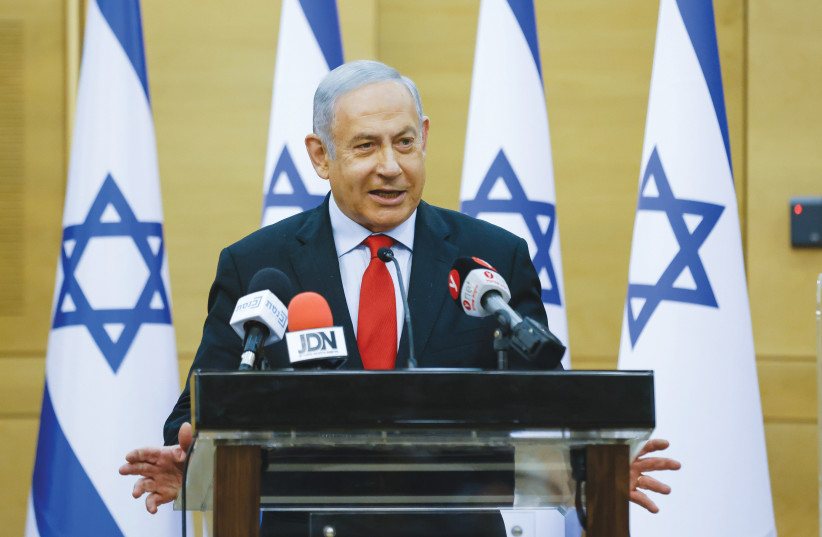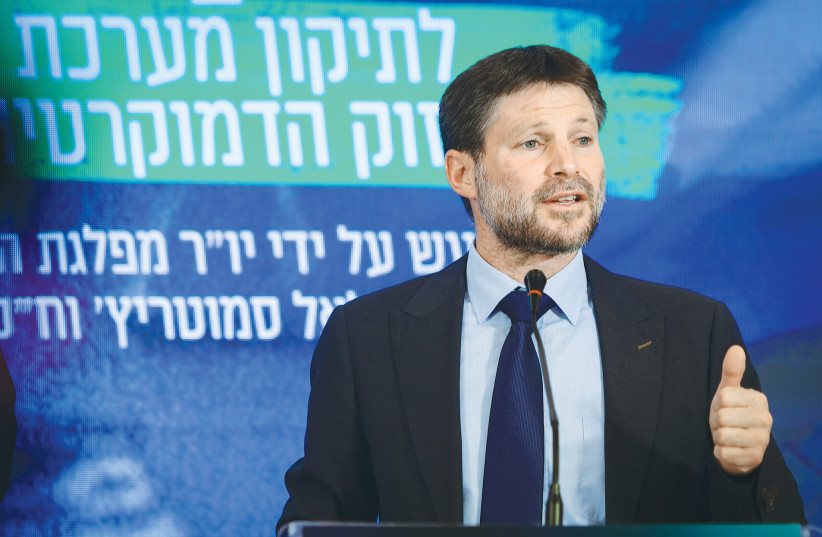It’s one of the most important roles in the Israeli government, responsible not only for the country’s security but for ongoing relationships with militaries and officials worldwide. No, it’s not the prime minister; it’s the defense minister.
While focused on building the strength of the IDF, the minister is also responsible for the promotion of research and development of groundbreaking technology by working alongside local and international companies.
The Defense Ministry also plays a significant role in the education of thousands of Israeli youths who participate in various ministry-led programs to prepare themselves for the IDF.
Even after one’s release from military service, the Defense Ministry provides assistance and rehabilitation to disabled veterans as well as support for bereaved families.
The defense minister, who sits in the Kirya military headquarters in Tel Aviv, is a central figure in relations between Israel and other countries, including those without official ties.

Outgoing Defense Minister Benny Gantz has served in the role for more than two and a half years and has overseen many achievements made by his ministry while in office.
Was Benny Gantz's tenure as defense minister successful?
From building defense ties with the countries who signed the Abraham Accords as well as Turkey, avoiding war with Hezbollah by playing a role in reaching a maritime border deal with Lebanon, keeping fighting with Gaza to several days of clashes, and preventing Washington from making a deal with Iran over its nuclear program, Gantz has been busy while in office.
The defense minister was a frequent visitor to Washington, liaising with his counterparts to strengthen the strategic alliance and for meetings on subjects like the Iranian threat, and the development and sale of advanced and sensitive military equipment.
Visits to Washington also included meetings to ensure Israel’s qualitative military edge (QME) in the region, a sensitive subject that includes working on the coming Memorandum of Understanding (MOU).
The defense minister is a commander, politician and diplomat. Whoever will replace Gantz has much to live up to.
For the White House, this is the portfolio it’s keeping a close eye on as former Prime Minister Benjamin Netanyahu returns to office.
The United States is Israel’s closest ally, providing the Jewish State not only with billions of dollars of aid but the countless projects that the two nations work on together which provide Israel with groundbreaking defense capabilities.
With the war in Ukraine remains a central issue for Washington, the next defense minister will have to continue to walk Israel’s tightrope with Russian strongman Vladimir Putin.
Under the governments of Naftali Bennett and Yair Lapid, Israel refused to provide Ukraine with any lethal military equipment, despite repeated requests by Ukraine.

One of the reasons behind that policy was to ensure that Israel’s war-between-wars campaign in Syria not be hindered by Russia. And while Russia has removed forces and S-300 missile defense batteries from the country, it remains a significant military power on Israel’s northern border.
To change that policy would be in line with Washington and other NATO countries, but it could have a major effect on Israel’s campaign against Iran in Syria.
Rumors about Netanyahu favoring Smotrich or Gallant to replace Gantz
Netanyahu is rumored to favor either Religious Zionism chair Bezalel Smotrich or Yoav Gallant to replace Gantz in the upcoming government.
Unlike Gantz, who has decades of experience that helped him lead the defense ministry, Smotrich only served for 14 months in the IDF’s operations division after he was conscripted at 28 years old.
While he never took part in combat, he’s claimed that he knows full well the intricacies of the IDF and how the military is managed and decisions are made.
Smotrich is well-known for his inflammatory comments, most recently on Sunday at the Knesset during a memorial ceremony marking 27 years since the assassination of Prime Minister Yitzhak Rabin, when he blamed the Shin Bet of being involved.
Likud MK Gallant, meanwhile, has served in command positions in the IDF and has not made such comments against Israel’s security services.
A level-headed politician, Yoav Gallant knows the intricacies of the defense ministry and is diplomatic enough to continue with policies that would bring Israel closer to its Gulf neighbors and push the international community toward continued pressure on Iran.
Though the White House will have to work with whoever replaces Gantz, officials would likely breathe a sigh of relief if Gallant is named.
If the time it took US President Joe Biden to call Netanyahu and congratulate him (five days) is any indication of American concerns over Israel’s election results, it is imperative that Netanyahu pick a defense minister who will work not only for his electorate but for the whole country.
